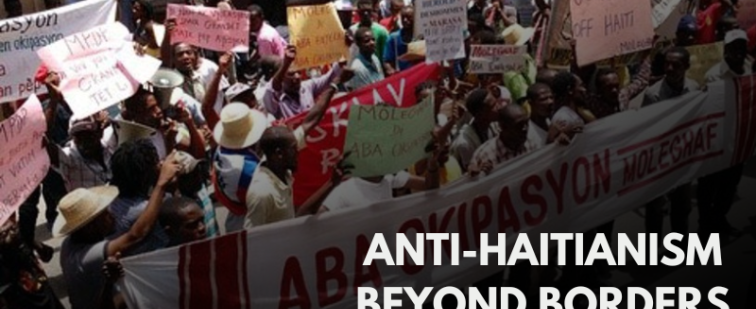Home
Fred Baker’s Assata aka JoAnne Chesimard could have provided an occasion for reflection on the civil rights agenda and the people who fought for it in a clear-eyed, analytical way, lest we lose sight of the fact that the agenda for which so many suffered and died remains largely unfulfilled. The film's subject is both inspiring and controversial, a cautionary tale about the lengths to which the U.S. state was willing to go in quashing black radicals and a reminder of just how high the stakes really were.
Human rights activists from Latin America met in the Brazilian capital of Brasília in June to talk about and evaluate the efforts regional governments have made toward eradicating racism and discrimination. The conference is part of an ongoing process initiated by the landmark 2001 UN World Conference Against Racism held in Durban, South Africa.
Talk about pandering to your wanna-be, gotta-have conservative base. Senator John McCain, the maverick, who just last year led a major bipartisan campaign with liberal icon Ted Kennedy to pass sweeping immigration reform, is humming a different tune these days.
Outside of Ecuador, most progressives consider President Rafael Correa to be a Leftist champion of social and economic justice. Inside the country, however, conflicts between Correa and the social movement Left—the indigenous movement, environmentalists and unions, among others—have become increasingly heated.
 |
In early July in Sicaya, Cochabamba, Bolivian President Evo Morales announced that if he wins the August 10 recall vote on his presidency, "I'll have two and half years left." But if he loses the vote, "I’ll have to go back to the Chapare" to farm coca again. Though the recall vote is likely to favor Morales, it’s unclear if it will resolve many of the divided nation’s conflicts.
Recent coverage of the pending U.S. trade deal with Colombia made clear that major U.S. media outlets presented only their preferred side of the story rather than providing the public with the range of information necessary for an honest, informed debate on U.S. trade policy. Major media pulled out all the stops to come out in support of this one: NAFTA, human rights, terrorism, paramilitaries, Hugo Chávez... Wait, what?
A Nicaraguan political party originally formed by indigenous Contras, who bitterly fought against the Sandinista Revolution, have forged a political alliance with their former foes. Despite lingering mistrust of the Sandinistas and Nicaragua’s fractious political landscape, it is unclear whether the alliance with the governing party is actually helping the indigenous party address the demands of its Miskitu support base.
Venezuela's Bolivarian Revolution has hit some snags at home and abroad. Five years ago, President Chávez seemed unstoppable, but his regional political bloc has started to flounder and his attempt to overhaul Venezuela's constitution was defeated. The outcome of the next U.S. presidential election could determine whether Chávez is able to regain lost momentum.
Under George W. Bush, U.S. AIDS policy has been driven by politics rather than science. U.S.-sponsored program favor treatment over prevention, which entails engaging with politically difficult issues like teen sex and homosexuality, condom usage, and prostitution. This leads critics around the world to ask: How can a program fight AIDS without including prostitutes and homosexuals or promoting condom use?
Colombia’s armed conflict is taking the AIDS epidemic among the country’s women and displaced population in radically new directions. Both guerrillas and paramilitaries often run prostitution rackets in areas under their control, forcing sex workers to have unprotected sex and extract bits of information from enemy clients. Combatants themselves are five times more likely than civilians to contract HIV.












